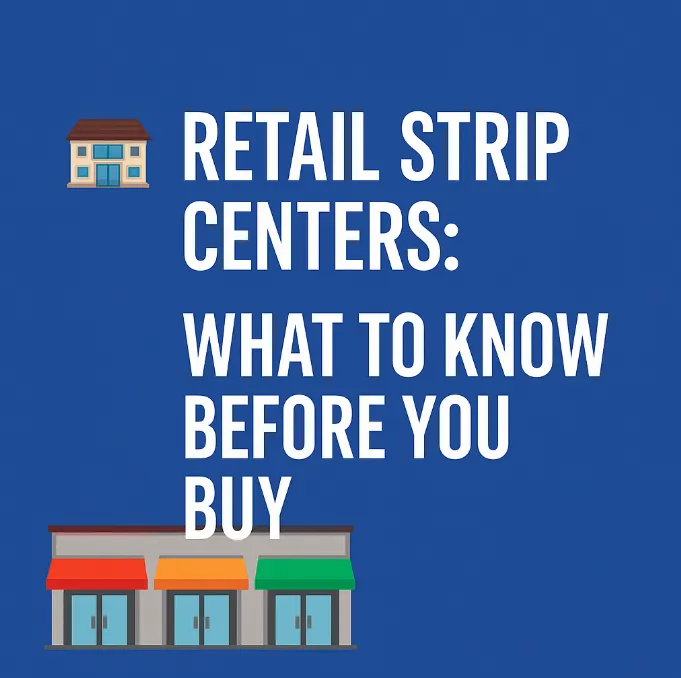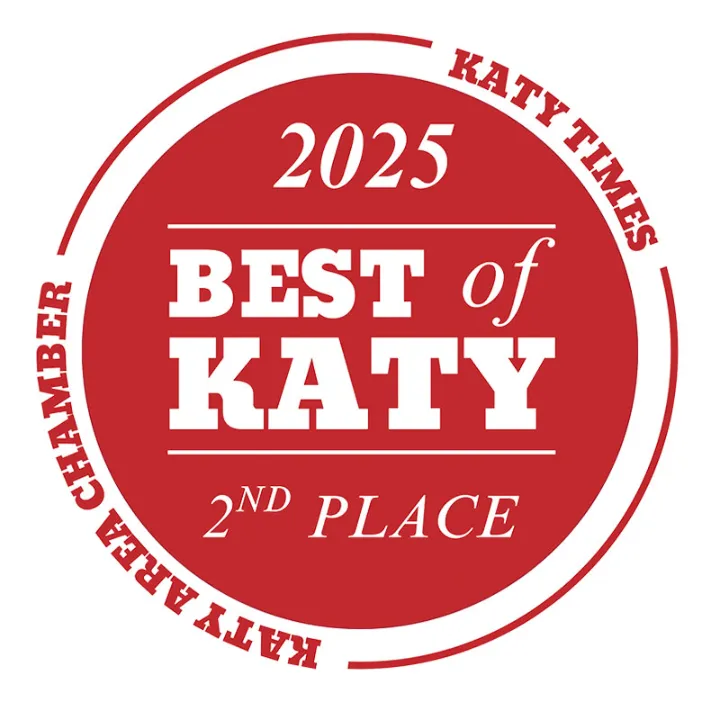Your Trusted Houston Commercial Real Estate Brokerage
Viking Enterprise LLC is part of eXp Commercial, an agent-led, cloud-based commercial real estate brokerage with agents across the globe.
Email: [email protected]
Call: (281) 222-0433
Your Trusted Katy / Fulshear & Houston Commercial Real Estate Brokerage
Viking Enterprise LLC is part of eXp Commercial, an agent-led, cloud-based commercial real estate brokerage with agents across the globe.
Looking to invest, buy, sell or lease? We can help.
Looking to invest, buy, sell or lease? We can help.
FEATURED PROPERTIES




OUR FEATURED TENANTS & CLIENTS
eXp Commercial - Viking Enterprise Team's real estate network provides unparalleled commercial real estate services to Tenants and Landlords around the Katy- Houston area. Our knowledge, experience, and reputation sets us apart from many firms.
A commercial property owner might have various plans that would necessitate the services of a commercial real estate broker. Some of the common scenarios include:
1. Selling the Property: If the owner decides it’s time to sell the property, a commercial real estate broker can help determine the market value, market the property effectively, and negotiate with potential buyers to get the best possible price.
2. Leasing Space: For property owners looking to lease out part or all of their commercial space, a broker can help find suitable tenants, negotiate lease terms, and ensure the lease agreements meet all legal requirements and serve the owner’s best interests.
3. Acquiring More Properties: Owners looking to expand their portfolio would benefit from a broker's knowledge of the market, access to listings, and negotiation skills to secure additional properties at favorable terms.
4. Property Management: While not all brokers offer this service, some commercial real estate brokers or their affiliates offer property management services. This can be particularly appealing for owners who prefer a hands-off approach or are managing properties from a distance.
5. Market Analysis: Owners considering future developments, renovations, or rebranding of their property might engage a broker for a comprehensive market analysis. This helps in understanding current market trends, the demand for different types of spaces, and potential returns on investment for various strategies.
6. Refinancing: In situations where a property owner is looking to refinance their property, a commercial real estate broker can provide valuable insights into the property’s current market value, assist in gathering necessary documentation, and even help in finding the best financing options.
7. Partnership or Investment Opportunities: Owners interested in exploring partnerships, joint ventures, or seeking investors for expansion or development projects might use a broker to find and vet potential partners or investors.
8. Consulting on Zoning and Use Changes: When contemplating a change in the use of the property or dealing with zoning issues, a broker with experience in local regulations and the specific property type can provide guidance and strategic planning assistance.
9. Exit Strategy Planning: For owners looking to plan an exit strategy from their investment, whether it’s through a strategic sale or a gradual winding down of operations, brokers can provide market insights, timing advice, and valuation services to optimize the exit process.
In any of these scenarios, the expertise and services provided by a commercial real estate broker can save the property owner time and money, while also providing access to a wider network of potential buyers, tenants, and industry professionals. Give us a call today!
Reviews

🏬 How to Buy a Retail Strip Center Like a Pro 💼
🏬 How to Buy a Retail Strip Center Like a Pro 💼
💡 What Every Investor Should Know Before Buying a Retail Strip Center 🧠
🏬 Retail Strip Centers: What to Know Before You Buy
Retail strip centers are among the most attractive commercial real estate investments for good reason—they offer multiple revenue streams, tenant diversity, and are often positioned in high-traffic locations. But buying one isn’t as simple as collecting rent. Whether you're a first-time investor or expanding your portfolio, here's what you need to know before acquiring a retail strip center.
✅ Understand the Tenant Mix
Strong anchor tenants (like national brands or grocers) attract foot traffic and boost the appeal of your center. But smaller tenants, such as salons or restaurants, often pay higher rent per square foot. Evaluate lease terms, tenant history, and the risk of vacancies.
📊 Evaluate the Financials
Review the rent roll, profit and loss statements, CAM reimbursements, and vacancy rates. Lenders will want a detailed financial picture before financing the deal. Don’t forget to account for potential capital expenditures or deferred maintenance.
📍 Location, Location, Location
Retail success is driven by visibility, access, and traffic counts. Centers near residential growth, major intersections, or key employment hubs perform better. Check zoning and surrounding development plans.
🧾 Lease Structures Matter
Triple-net (NNN) leases are common in retail strips—meaning tenants cover taxes, insurance, and maintenance. This can reduce your ownership costs, but make sure lease clauses protect you in case of major repairs.
🔍 Due Diligence is Critical
Always conduct a property inspection, environmental report (Phase I), and title review. Understand parking ratios, access easements, and signage rights—these can make or break tenant satisfaction.
💰 Financing Options
Retail strip centers typically qualify for SBA 504, bank loans, or DSCR-based loans. Rates, terms, and LTV vary based on tenant quality, lease terms, and your experience as a borrower.
🚀 Exit Strategy
Are you buying for long-term hold, value-add, or future sale? Knowing your strategy helps guide your offer price, financing terms, and lease structuring.
https://www.houstonrealestatebrokerage.com/
https://www.houstonrealestatebrokerage.com/houston-cre-navigator
https://www.commercialexchange.com/agent/653bf5593e3a3e1dcec275a6
http://expressoffers.com/[email protected]
https://app.bullpenre.com/profile/1742476177701x437444415125976000
https://author.billrapponline.com/
https://www.amazon.com/dp/B0F32Z5BH2
© 2023-2024 Bill Rapp, Broker Associate, eXp Commercial Viking Enterprise Team
eXp Commercial - Viking Enterprise team real estate network provides unparalleled commercial real estate services to Tenants and Landlords around the greater Katy & Houston MSA area. Our knowledge, experience, and reputation sets us apart from many firms.
A commercial property owner might have various plans that would necessitate the services of a commercial real estate broker. Some of the common scenarios include:
1. Selling the Property: If the owner decides it’s time to sell the property, a commercial real estate broker can help determine the market value, market the property effectively, and negotiate with potential buyers to get the best possible price.
2. Leasing Space: For property owners looking to lease out part or all of their commercial space, a broker can help find suitable tenants, negotiate lease terms, and ensure the lease agreements meet all legal requirements and serve the owner’s best interests.
3. Acquiring More Properties: Owners looking to expand their portfolio would benefit from a broker's knowledge of the market, access to listings, and negotiation skills to secure additional properties at favorable terms.
4. Property Management: While not all brokers offer this service, some commercial real estate brokers or their affiliates offer property management services. This can be particularly appealing for owners who prefer a hands-off approach or are managing properties from a distance.
5. Market Analysis: Owners considering future developments, renovations, or rebranding of their property might engage a broker for a comprehensive market analysis. This helps in understanding current market trends, the demand for different types of spaces, and potential returns on investment for various strategies.
6. Refinancing: In situations where a property owner is looking to refinance their property, a commercial real estate broker can provide valuable insights into the property’s current market value, assist in gathering necessary documentation, and even help in finding the best financing options.
7. Partnership or Investment Opportunities: Owners interested in exploring partnerships, joint ventures, or seeking investors for expansion or development projects might use a broker to find and vet potential partners or investors.
8. Consulting on Zoning and Use Changes: When contemplating a change in the use of the property or dealing with zoning issues, a broker with experience in local regulations and the specific property type can provide guidance and strategic planning assistance.
9. Exit Strategy Planning: For owners looking to plan an exit strategy from their investment, whether it’s through a strategic sale or a gradual winding down of operations, brokers can provide market insights, timing advice, and valuation services to optimize the exit process.
In any of these scenarios, the expertise and services provided by a commercial real estate broker can save the property owner time and money, while also providing access to a wider network of potential buyers, tenants, and industry professionals. Give us a call today!

Find the perfect location for your business.
Let us help your business succeed.

🏬 How to Buy a Retail Strip Center Like a Pro 💼
🏬 How to Buy a Retail Strip Center Like a Pro 💼
💡 What Every Investor Should Know Before Buying a Retail Strip Center 🧠
🏬 Retail Strip Centers: What to Know Before You Buy
Retail strip centers are among the most attractive commercial real estate investments for good reason—they offer multiple revenue streams, tenant diversity, and are often positioned in high-traffic locations. But buying one isn’t as simple as collecting rent. Whether you're a first-time investor or expanding your portfolio, here's what you need to know before acquiring a retail strip center.
✅ Understand the Tenant Mix
Strong anchor tenants (like national brands or grocers) attract foot traffic and boost the appeal of your center. But smaller tenants, such as salons or restaurants, often pay higher rent per square foot. Evaluate lease terms, tenant history, and the risk of vacancies.
📊 Evaluate the Financials
Review the rent roll, profit and loss statements, CAM reimbursements, and vacancy rates. Lenders will want a detailed financial picture before financing the deal. Don’t forget to account for potential capital expenditures or deferred maintenance.
📍 Location, Location, Location
Retail success is driven by visibility, access, and traffic counts. Centers near residential growth, major intersections, or key employment hubs perform better. Check zoning and surrounding development plans.
🧾 Lease Structures Matter
Triple-net (NNN) leases are common in retail strips—meaning tenants cover taxes, insurance, and maintenance. This can reduce your ownership costs, but make sure lease clauses protect you in case of major repairs.
🔍 Due Diligence is Critical
Always conduct a property inspection, environmental report (Phase I), and title review. Understand parking ratios, access easements, and signage rights—these can make or break tenant satisfaction.
💰 Financing Options
Retail strip centers typically qualify for SBA 504, bank loans, or DSCR-based loans. Rates, terms, and LTV vary based on tenant quality, lease terms, and your experience as a borrower.
🚀 Exit Strategy
Are you buying for long-term hold, value-add, or future sale? Knowing your strategy helps guide your offer price, financing terms, and lease structuring.
https://www.houstonrealestatebrokerage.com/
https://www.houstonrealestatebrokerage.com/houston-cre-navigator
https://www.commercialexchange.com/agent/653bf5593e3a3e1dcec275a6
http://expressoffers.com/[email protected]
https://app.bullpenre.com/profile/1742476177701x437444415125976000
https://author.billrapponline.com/
https://www.amazon.com/dp/B0F32Z5BH2
© 2023-2024 Bill Rapp, Broker Associate, eXp Commercial Viking Enterprise Team
Find the perfect location for your business.
Let us help your business succeed.
9600 Great Hills Trail, Suite 150w Austin, TX 78759 |
855.450.0324 xx255
Texas Real Estate Commission Consumer Protection Notice Texas Real Estate Commission
Information About Brokerage Services eXp Commercial LLC #9010212
Viking Enterprise LLC #9009614

Sign up to receive the latest news on property investment and commercial real estate listings.
Contact Us
901 S Mopac Expwy, Bldg 2, Suite 350 Austin, TX 78746 | 512.474.5557Texas Real Estate Commission
Consumer Protection Notice Texas Real Estate Commission Information About Brokerage Services Reliance Retail, LLC #603091
Texas RS, LLC #9003193 | RESOLUT RE Is Licensed In Louisiana #0995694083


Facebook
Instagram
X
LinkedIn
Youtube
TikTok